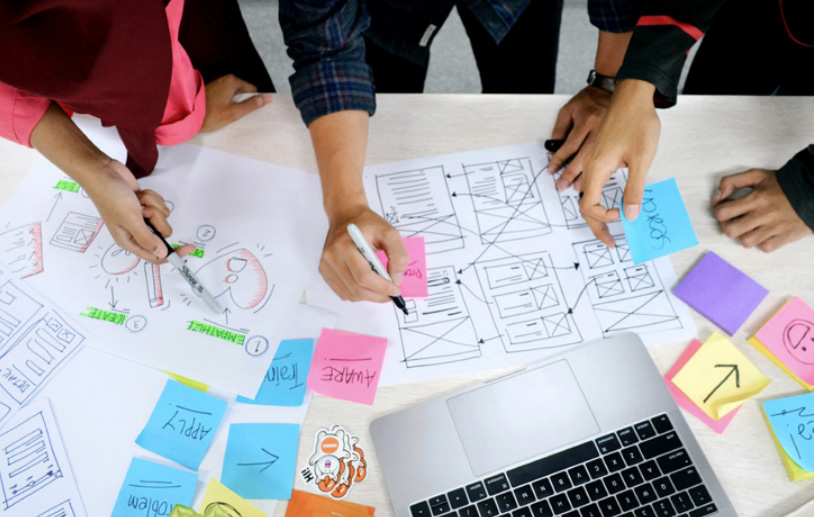News from the MCAA - When Science Meets Design: A workshop with scientists and designers
Newsletter
Understanding how scientists and designers teamed up to explore career options with a journey of imagination and creativity developed by the Brazilian MCAA chapter.
A scientist may be described as a person who connects his/her knowledge with the world's challenges and the technologies available in order to solve global problems. Problem-solving is one of the strongest skills you can find in a scientist and great solutions require creative thinking, a skill found in 100% of designers. So, the combination of a designer and a group of scientists can bring thousands of ways to help society solve problems or even, redesign science careers. This idea sounds so interesting that the Brazilian MCAA Chapter decided to invite a designer, Julia Dias, to moderate an online workshop "Design your career in science" for scientists.
In this online training, ten researchers needed to imagine themselves as explorers, equipped with a backpack full of tools to explore six islands and overcome some challenges in their five-day journey. With a playful and positive attitude, Julia guided us on this adventure using some well-known methodologies, such as design thinking and the science of happiness. Julia is a happiness designer and CEO of Design Peculiar, a programme that uses design thinking to explore career options for professionals and has helped people from high school students in Brazil to researchers in Norway.
If you are unaware of using design thinking to solve problems, know that it is well-used in business and regardless of the field, it aims to bring creative and innovative solutions to problems. The science of happiness is a concept associated with positive psychology and the social sciences that makes life worth living.
Julia’s workshop was based on six stages, or, as she likes to call them, six islands to be explored: discover, define, imagine, plan, test and review. Every stage has different challenges and goals that involve a lot of drawing, notes and activities to get you out of the box and inspired to create. "Discover" was the first, most laborious, but interesting stage to develop because, more than being the first step into the adventure, we needed to understand what brought us to the present by creating a map with our experiences in life.
Uncovering the events of the past is hard, but it's essential to figure out the choices we’ve made and our interests that have always been within us. However, when we started the "define" stage, I immediately remembered Lewis Carroll's quote from the classic children's tale, Alice in Wonderland "If you don't know where you're going, any road will get you there." In other words, defining where you want to reach brings focus to one goal, or it makes us break down a complex journey into small and simple pathways to sail. Knowing our trials, barriers, and obstacles in that way helps us create strategies to walk through them easily.

The stage that required the most creativity from the group was “imagine," when we needed to imagine all the possibilities of our careers according to where we wanted to reach. According to Julia, it’s a great opportunity to create new journeys and see the world through tourist eyes. Next, it was time to plan the journey chosen to be explored. It involved networking and being exposed to possibilities, like joining congress, attending events and professional meetings, and contacting friends or acquaintances. “Test” and “review” were the last stages, and more than revisiting the journey, it was the moment to share the thoughts, discuss ideas and options from all the attendees. It was a vote for hope and positivity for our future as the positive psychology proclaims.
Scientists are experts in their research, and sometimes it blinds them to see other career options and possibilities that are one step away from being achieved. Focused on data analysis, technical writing and regulations, some days with imagination and ludic activities can take them out of their comfort zone and help them imagine possibilities not thought of before. I am convinced this workshop was a great initiative from the Brazilian MCAA Chapter to provide us with an effective toolbox to clarify some roads we were afraid to take because of the darkness we were facing.
Relevant information:
Design Peculiar: www.designpeculiar.com
How to improve your career with design: https://rb.gy/7dcry
Ana Paula Mendonça
Editorial Board Member, MCAA Newsletter
ana.mendonca@unipd.it
Twitter: @ana_paulamm2